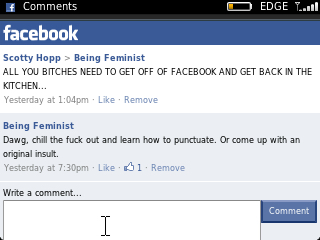Is it really the death of feminism gender equality in India? Assuming, of course, it was there to begin with in the first place. I am assured of the fact that YES, it WAS. Don’t you notice those nude sculptures celebrating the human (mostly female) form? The “linga”, which is a celebration of the heterosexual union (which had the power to create new life). And not only heterosexual, homosexuality and female sexuality were accepted too, in the era of the Kamasutra. Females (and their ability to create new life) were celebrated and worshipped in a society which needed human resources.
People say feminism gender equality was awlll the rage earlier. I’m taking the views of these accomplished people at face-value for this post.
OK, so let us assume India was this total feminist equal-rights-giving country before.
What has happened now?
Why are men locking up their wife’s genitals? Of course, the criminal gave his answer – because many women in his family have strayed before. So, he thought it was perfectly acceptable to drill a hole in his wife’s vagina and lock it to prevent her from straying.
Why are rape-victims being killed? Shushed up? Does our “honour” reside in our genitals? Sexuality?
Cinema halls which had shows of a film depicting lesbian sexuality were ransacked by mobs claiming to uphold the same feminist equality endorsing culture.
Why did the people screaming about cultural degradation molest, strip, beat and almost rape a girl on a busy street?
What made them attempt to rape, beat, strip and try to murder a pregnant female politician?
What makes rival clans rape, strip, beat and pour acid on females of the other clan? Why is it considered a victory?
Why are females thought of as less than human?
What is this culture they are protecting here? When people talk about the women deserved what they got because it is Indian Culture, what CULTURE are they talking about?
A culture which represses sexuality (mostly female)?
A hypocritical culture, as it has become now?
A culture which treats women as second-class citizens?
A culture which can’t let people grow out of the rigid roles ascertained by their caste, class and gender?
A culture which endorses punishment for those who dare to live otherwise?
A culture which dehumanizes women?
A rape culture?
A culture where (female) bodies and sex are equated with shame?
Then why are we even defending this CULTURE?
And yes, we are defending it, in varying degrees, if we don’t speak out.
Speak out, talk, and shout if needed – you may have the chance of changing (at the very least) the thought processes of a couple of people.
And oh, don’t forget to remind them to speak out either!
Now repeat the following with me –
1) RAPE (OR ANY OTHER KIND OF VIOLENCE) IS NEVER THE VICTIM’S FAULT
2) ALL GENDERS ARE EQUAL*
3) CHILDREN HAVE THE SAME HUMAN RIGHTS AS A GROWN-UP
4) NOBODY SHOULD BE RESRICTED BY WHAT THE SOCIETY THINKS YOU “SHOULD” BE**
5) SEX IS NOT BAD OR SHAMEFUL
Any other points? I know I might have missed out on some 🙂
But ya got the drift, didn’t ya?
*Yeah, shocker, there are more than two genders! Also, a particular sex =/= a particular gender
** What you “should” be restricts you from what you could be or want to be or both
Also, FEMINISM isn’t a dirty word. Trust me. More on that in the posts to come 🙂








